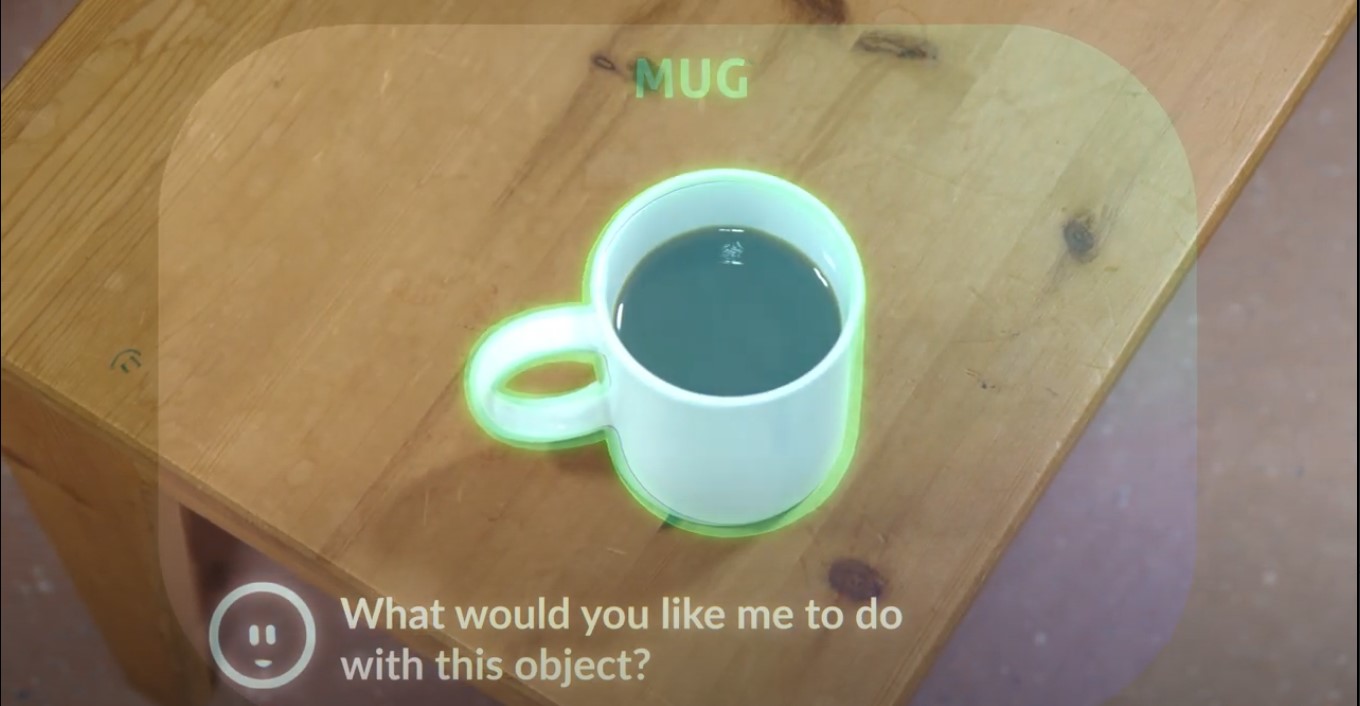AI spectacles awarded share of £1.5m prize

AI spectacles that help people living with dementia are among five projects sharing £1.5m to develop technology that maintains independence.
The lightweight smart devices will work with existing prescriptions. They give wearers a screen in front of their eyes with a target that can be directed at objects.
The system identifies items, such as kitchen appliances, and provides information about how to use them. The CrossSense spectacles come with an augmented reality app, which helps people living with dementia remember loved ones, objects, and daily activities.
This enables people to maintain context and carry out daily tasks with greater ease. The devices also overlay colours, shapes and sounds as multi-sensory memory cues.
The spectacles will assist with daily activities, such as making a cup of tea or greeting a loved one.
Alzheimer’s Society chief executive Kate Lee said: “Around one million people in the UK live with dementia, a figure projected to rise to 1.4 million by 2040. AI presents exciting opportunities to help those with dementia stay active and independent, enabling them to remain in their own homes for as long as possible.
“By harnessing the power of technology, we can support memory recall and assist individuals in maintaining their daily routines.”
The Society is one of the funders of the Longitude Prize on Dementia. In early 2026, one of the projects sharing the development funding will be declared the winner and receive a prize pot of £1 million.
Dementia will affect one in three people born in the UK. Around a million people are living with a form of the condition, projected to rise to 1.4 million people by 2040.
Dr Jennifer Bute was diagnosed with young-onset Alzheimer’s disease in 2009 at the age of 63, and had to retire early from her career as a GP. “Research suggests that remaining independent, whether in your own home or a place where extra help is available, is one of the best contributors to slowing the progression of Alzheimer’s disease,” she says.
“As a daily user of technology to help manage my finances, medications – even my home lighting – it’s really encouraging to see the breadth of new tools and services being developed to support independent living.
One of the shortlisted projects is a digital remote monitoring hub, from Supersense Technologies. Chief executive Dr James Brown said: “A few years ago, I was volunteering with a charity supporting people who had just received a dementia diagnosis.
“At almost every house we visited there would be a drawer full of unused gadgets – fall-detection watches or pendants, AI speakers – great tech but clearly not being used by the people it was designed for.
“As an engineer and researcher with a decade of experience in developing sensor technology, I knew that there was far better, unintrusive technology that could help people with dementia or mild cognitive impairment to live safely in their own homes for longer, and to help families know that their loved one is safe and well.”
The finalists have access to potential product users, mentorship, and expert advice on technical and business aspects of the innovation to ensure products are scalable. All teams will be working with people with lived experience to ensure solutions are fully co-created.
- For more information please visit dementia.longitudeprize.org